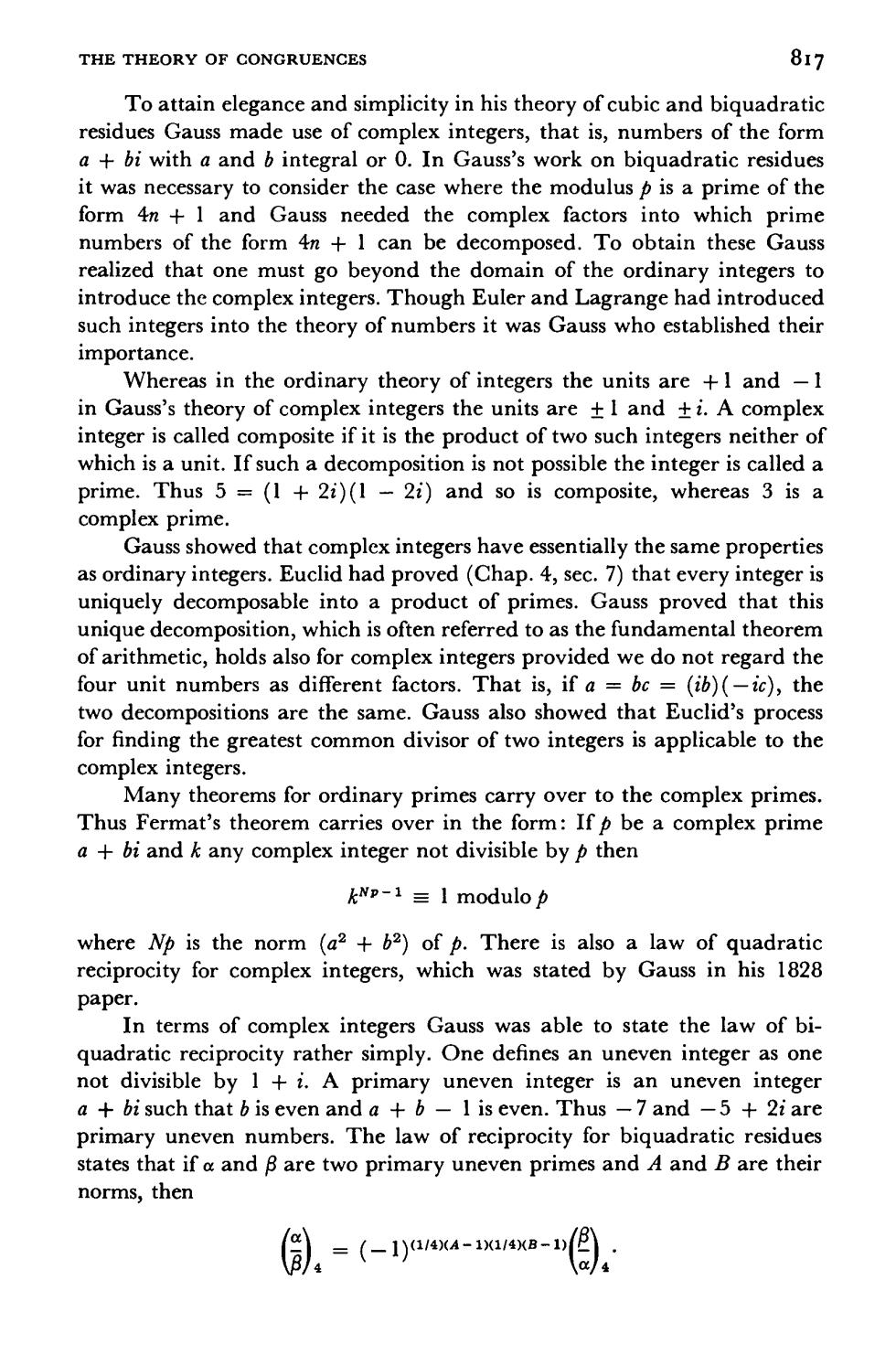正在加载图片...

THE THEORY OF CONGRUENCES 817 To attain elegance and simplicity in his theory of cubic and biquadratic residues Gauss made use of complex integers,that is,numbers of the form a+bi with a and b integral or 0.In Gauss's work on biquadratic residues it was necessary to consider the case where the modulus b is a prime of the form 4n+1 and Gauss needed the complex factors into which prime numbers of the form 4n +1 can be decomposed.To obtain these Gauss realized that one must go beyond the domain of the ordinary integers to introduce the complex integers.Though Euler and Lagrange had introduced such integers into the theory of numbers it was Gauss who established their importance Whereas in the ordinary theory of integers the units are +1 and -I in Gauss's theory of complex integers the units are tl and ti.A complex integer is called composite if it is the product of two such integers neither of which is a unit.If such a decomposition is not possible the integer is called a prime.Thus 5 =(1 2i)(1-2i)and so is composite,whereas 3 is a complex prime. Gauss showed that complex integers have essentially the same properties as ordinary integers.Euclid had proved (Chap.4,sec.7)that every integer is uniquely decomposable into a product of primes.Gauss proved that this unique decomposition,which is often referred to as the fundamental theorem of arithmetic,holds also for complex integers provided we do not regard the four unit numbers as different factors.That is,if a =bc =(ib)(-ic),the two decompositions are the same.Gauss also showed that Euclid's process for finding the greatest common divisor of two integers is applicable to the complex integers. Many theorems for ordinary primes carry over to the complex primes. Thus Fermat's theorem carries over in the form:If be a complex prime a bi and k any complex integer not divisible by b then kNp-1≡】modulo where No is the norm (a2+b2)of b.There is also a law of quadratic reciprocity for complex integers,which was stated by Gauss in his 1828 paper. In terms of complex integers Gauss was able to state the law of bi- quadratic reciprocity rather simply.One defines an uneven integer as one not divisible by 1 +i.A primary uneven integer is an uneven integer a bi such that b is even and a+b I is even.Thus -7 and-5 2i are primary uneven numbers.The law of reciprocity for biquadratic residues states that if o and B are two primary uneven primes and A and B are their norms,then 。=(-1ae-a-